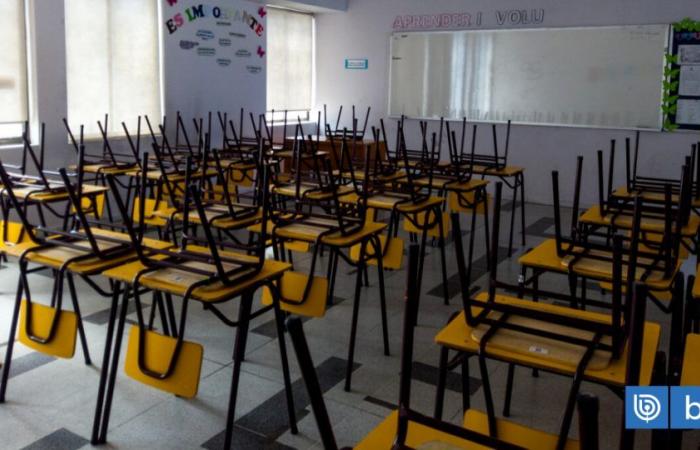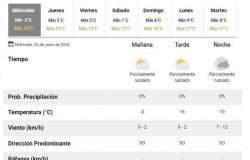
The Ministry of Education (Mineduc) announced that the holders may request, exceptionally and with recovery, the suspension of classes in establishments affected by recent rains.
The ministerial secretaries of Education of the regions of Coquimbo, Valparaíso, Metropolitana, O’Higgins, Maule, Ñuble, Bío Bío, La Araucanía and Los Ríos They may authorize the suspension of classes for the week of June 17.
This measure is taken in response to the effects of the frontal system and the requests of different supporters. The Ministry of Education instructed the regional ministerial secretaries of Education toto provide facilities for modifying the school calendar.
The suspension of classes will be considered in exceptional situations such as damage to infrastructure; connectivity and/or access problems to educational establishments; provision of basic services; or for reasons of force majeure.
Suspension of classes subject to recovery
In order to safeguard the effective fulfillment of the study plans of the different levels and guarantee the adequate continuity of learning for students in educational establishments, The suspension of classes will be subject to recovery.
The Minister(s) of Education, Alejandra Arratiapointed out that “given the effects that the frontal system has caused in different areas of the country, We thought it was important to provide flexibility so that educational communities can make the necessary adjustments to organize the appropriate return to classes.”
According to Mineduc, there are 1,700 educational establishments in the country that continue to provide food service in the affected regions.
The Minister of Education (s) maintained that “we were there at the time of the rains, we are now also monitoring, in this particular case, the food service.”
For its part, Camila Rubionational director of Junaeb, highlighted the institutional preparation to face this emergency.
According to her, this has “allowed us to deliver more than 3 thousand daily rations and have 1,700 establishments open thanks to the work we have done with the municipalities; with the Local Public Education Services (SLEP); and with subsidized education to be able to open schools so that boys and girls can eat.”





